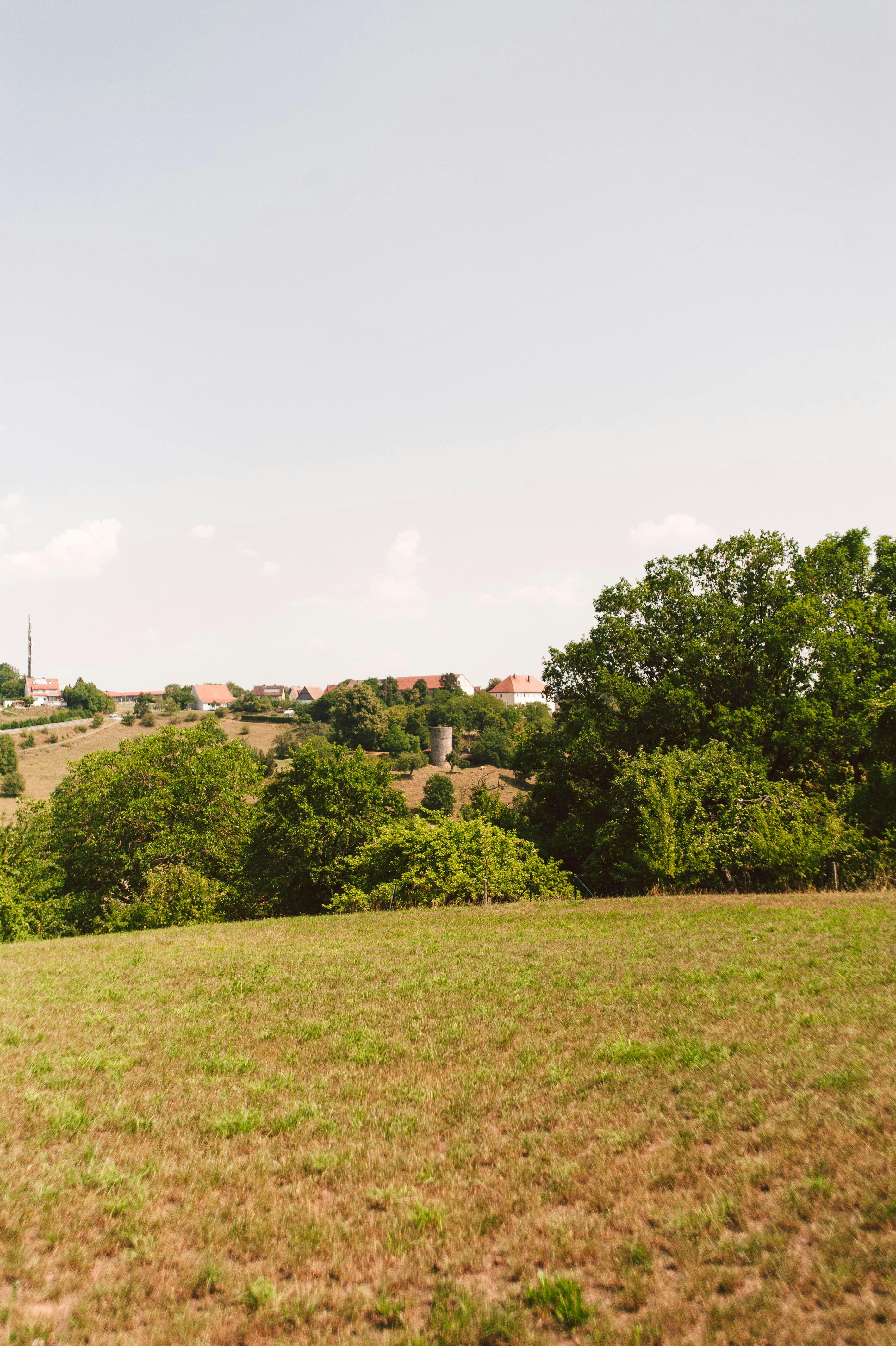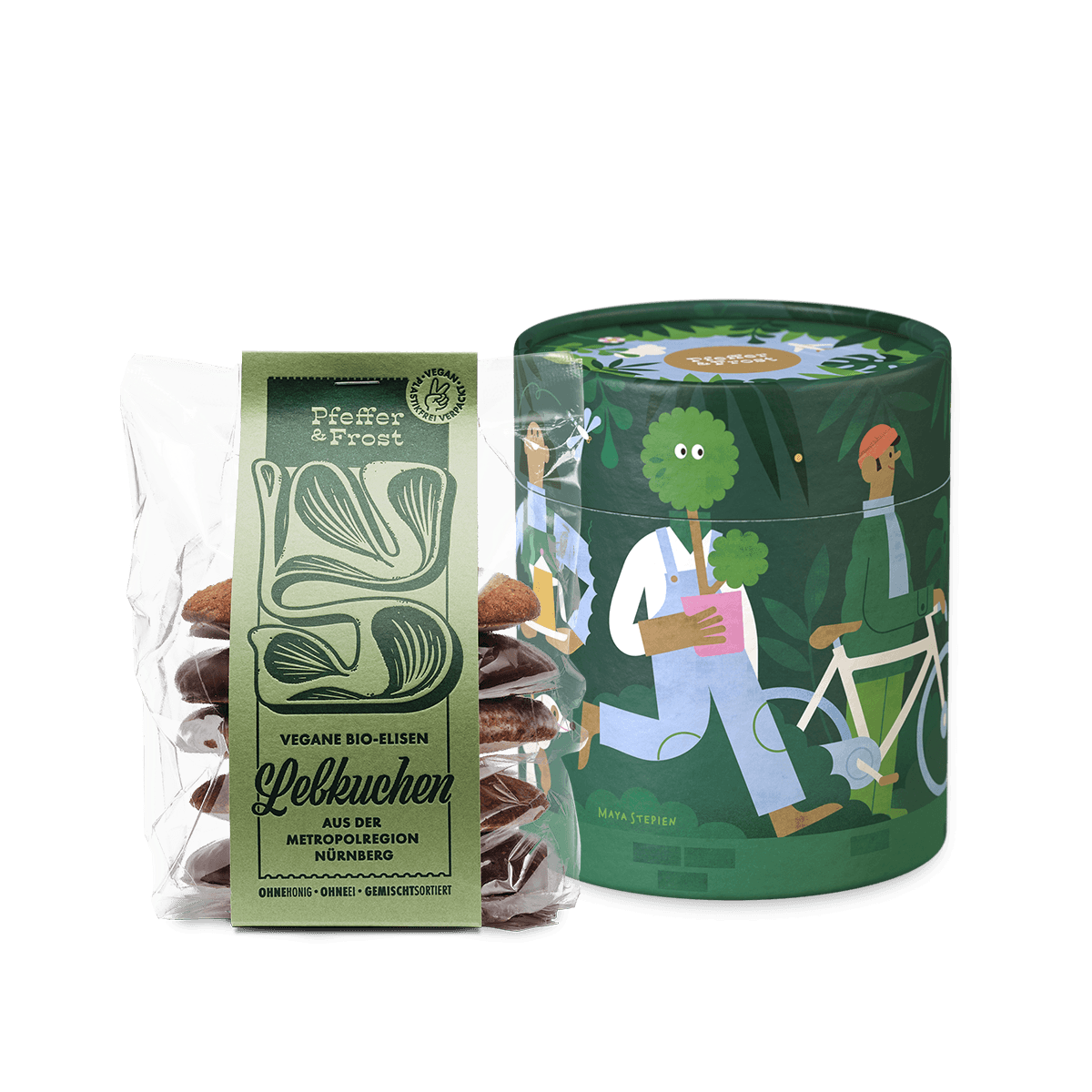Locally sourced ingredients
Honey with a castle view: Happy bees in the Rügland, Franconia.
In 2019, we decided to step by step source the ingredients for our Lebkuchen from our region and make their origins transparent. This is how we found Claus Rudolph, a passionate beekeeper from Central Franconia, and his forest honey.
On our way to Rügland, the landscape is gradually changing: Fewer and fewer houses, more bumpy roads, hardly any oncoming traffic, and wide open space. When we finally reach our destination on tiny, winding lanes, we find ourselves in a picturesque village with a castle, a lake, lots of blossoming flowers and buzzing bees.
Claus works organically with lots of love, enthusiasm and experience. His 20 beehives are placed in 6 different locations around Rügland, each of them home to 5000 bees in winter and up to 80,000 in summer, which makes a total population of 100,000 to 1.6 million (!) bees. All these busy bees work together in perfect harmony and communicate with each other almost as if by magic. They maintain a constant temperature of 28°C inside: Some bees specialise in warming the hive with their body heat when the temperature outside is frosty, whereas others fan air with their wings to provide ventilation on hot days. Meanwhile, the “scout bees” fly up to 12 kilometres to find the best nectar, and upon their return, they communicate by dancing the route to the bees’ version of the “land of milk and honey”. However, as they consume a lot of energy during long flights, they should ideally find food right at their doorstep. This is what Claus ensures by choosing the best locations for his beehives, and he’s now presenting us his thick, golden forest honey with a proud smile on his face.
If all goes well, honey can be harvested up to 3 times per year: made from spring blossoms in early May, summer blossoms in June/July, and finally the best and most precious forest honey in August. Of course, that’s the one we put in our Lebkuchen, although Claus thinks it’s almost too precious for that! He tests the consistency of the honey by tapping the honeycombs. If he can see little drops of honey flying, then it’s too early and the honey is still too liquid. A maximum of 18% water is the mark of quality that sets proper beekeeper’s honey apart from industrially processed honey, which is often diluted with water and rice syrup. The local beekeepers around Rügland come together in a beekeepers association to share space and costs for the harvest, i.e. extracting the honey from the combs. Besides these practical benefits, the association is also a welcome place for learning and sharing experiences between beekeepers who otherwise tend to be “lonesome riders”.
After the last honey of the year – the forest honey – has been harvested, “the slaughter of the drones” begins. Most of the worker bees are expelled, and only a hard core is allowed to stay in the hive over the winter, where they hibernate until the bees’ new year starts with the flowering of the first willows in late February/early March.
We can all do our bit so that Claus’ bees and all the other bees can live a good life and produce their delicious honey: Besides planting a variety of bee-friendly flowers in meadows and on our balconies, buying seasonal and regional produce can also have a bigger impact than we might think. Local farmers using small-scale, organic agriculture don’t need insecticides, which may have yet unknown long-term effects on plant and animal life. Any food produced without chemicals and with fewer food miles, will naturally taste better. That’s why we would like to encourage anyone to find honey from a local beekeeper, like Claus and his honey made with a castle view in Rügland.
We’re proud to make our Lebkuchen that extra bit more special thanks to this honey of noble origin!

